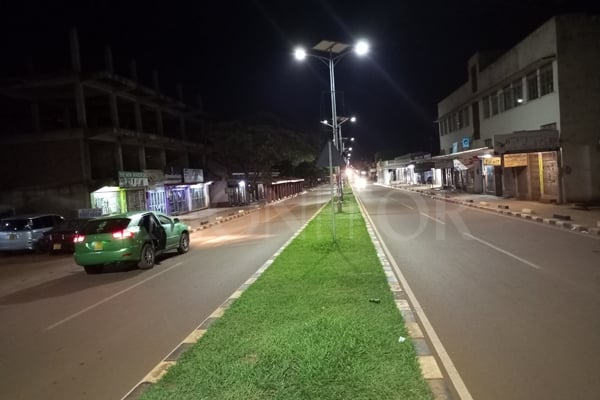New buildings eat up Jinja City roads

One of the private properties built on Circular Road in Jinja City that blocked access to Oboja Road. PHOTO / PHILIP WAFULA
What you need to know:
- Storeyed buildings have since been erected, old structures remodelled and others demolished, especially those with old Asian architecture.
Over the years, Jinja has witnessed infrastructural development as it prepared for a city status, which was approved in 2020.
Storeyed buildings have since been erected, old structures remodelled and others demolished, especially those with old Asian architecture.
However, this development has come at a cost of some historical access roads, which have ceased to exist after part of the city’s prime land was parcelled out to ‘developers’, some of whom built residential houses.
At least three historical roads or streets have been affected by these changes.
These include Bax-Bridge Road/Street, which connects to Bridge Road. The road was the shortest route to the agricultural showgrounds on Oboja Road. Now, a residential house has been erected and the road fenced off.
Motorists now have to access the agricultural showground through the Bax/Naranbhai stretch.
“The road provided the shortest link to the agricultural showgrounds but someone has bought an access road and turned it into private property,” Mr Musa Kalinaki, a boda boda cyclist, who has been in business for 25 years, says.
A source says the property is owned by the brother-in-law of former Jinja mayor Mohammed Baswale Kezaala.
When contacted, Mr Kezaala acknowledged the development but adds that he (brother-in-law) bought the plot.
According to Mr Kezaala, the city authority can revoke the title now that will have its own land board.
Oboja Road has also been affected following the construction of a car depot and a residential house, which reportedly belong to a European family.
The structures have blocked Circular Road which, until about 15 years ago, offered a shorter route to Rippon Falls through Kisinja Road.
Mr Kalinaki says the car depot was built five years ago, while the European family has been in the area much longer.
Mr Ramathan Nyende, who is in charge of the city’s roads and buildings, says he needs to research before making an assessment. “I need to first look at the road inventory to know whether it is a road or a path, otherwise we might assume it is a road yet it is someone’s plot,” Mr Nyende says.
But Mr Moses Bizitu, the former speaker of [then] Jinja municipal council, says whoever built on access roads did so illegally and should demolish the property.
“If it is an access road, the law is clear. One has to get an Environment Impact Assessment [EIA] to close a road and they have to involve the user and the city authorities.
“If the city authorities give a go-ahead, the national planning board has no mandate. The law should be followed and whoever failed on those parameters has done so illegally and must demolish the property at his or her cost,” Mr Bizitu says.
“If they are to do a major change of use, they should involve the population and communicate that such a road will be closed for whatever reason,” he adds.
Busoga Line also no longer exits after it was surveyed, sub-divided into plots and reportedly allocated to developers.
“As one of the historical roads, Busoga Line reached Jinja in 1912/13, bringing cotton to the Jinja Pier, which was transported to Port Florence [Kisumu]. The ferry brought the much-needed merchandise, which marked the beginning of cross-border trade which became further promoted by the Kenya-Uganda railway when it reached Jinja in 1928,” Mr Kezaala says.
Other altered roads
Some of the other roads in Jinja City that have some alterations include Luba Road, Zibondo Road, Menya Road and Wakooli Road. Others are Gabula Road, Tabingwa Road, Ntembe Road/Lane, Kisiki Road, Nkono Road, Kawunye Lane, Wako Close, and Muloki Road.





